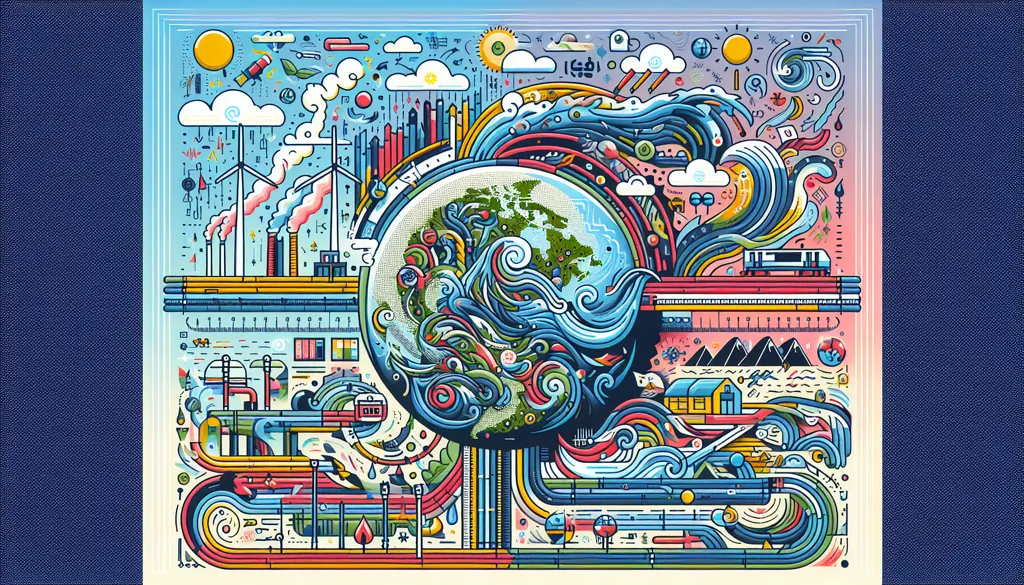Understanding the Complexities of Climate Change Attribution
Climate change is an ever-pressing issue, manifesting through more frequent and intense extreme weather events. As a resident of Kansas, I've observed its impacts firsthand, from scorching heatwaves to unpredictable tornado seasons. The science of attributing these events to climate change has developed significantly over the past few decades, providing insights into how human activities are altering our planet.
The Evolution of Attribution Science
Attribution science has come a long way since its early days when the Intergovernmental Panel on Climate Change (IPCC) first mentioned it in 1990. Initially, the field struggled to definitively link global warming to human activities due to limited observational data. However, as data collection improved and scientific methods became more sophisticated, the confidence in attributing climate change to human actions grew. By 2001, the IPCC reported consistent evidence of an anthropogenic signal in climate records.
In the early 2000s, the concept of probabilistic attribution emerged, allowing scientists to run climate models under scenarios with and without human-caused climate change. This method has been pivotal in understanding how much more likely or intense extreme weather events have become due to climate change. For instance, a study on the 2003 European heatwave concluded that human influence doubled the risk of such an event.
Methods and Approaches in Attribution Science
Different approaches have been developed to study climate change attribution. The storyline approach, introduced about a decade ago, focuses on the dynamics of specific events, providing a detailed narrative of how climate change influences them. This method is particularly useful for analyzing unprecedented events, like the 2021 Pacific Northwest heatwave.
Forecast attribution, another recent addition, uses weather forecasts to simulate events before they occur. This method can provide rapid assessments of climate change's impact on upcoming weather events, offering valuable insights for policymakers and emergency planners.
The Role of Climate Negotiations and Policies
International climate negotiations, such as those at the COP conferences, play a crucial role in addressing climate change. However, these discussions are often fraught with challenges. The recent COP29 highlighted the difficulties in transitioning away from fossil fuels, with countries like Brazil committing to biofuels while others, like Argentina, withdrew from the conference entirely.
Despite these challenges, there have been some positive developments. The establishment of a UN-backed global carbon market aims to standardize carbon credit trading, potentially revolutionizing how countries and companies meet their climate targets.
The Impact of Climate Change on Society
Climate change is not just an environmental issue; it's a societal one. The Lancet Countdown report highlights the health and economic costs, with heat-related deaths among older adults increasing significantly. Food security is worsening, with millions more facing shortages due to climate impacts.
Efforts to mitigate these effects are underway, such as the EPA's new rule to charge oil and gas companies for excessive methane emissions. However, these measures require robust support and implementation to be effective.
Conclusion
Living in Kansas, I see how climate change is reshaping our world. From droughts affecting our agriculture to extreme weather events threatening our safety, the need for action is clear. Attribution science offers a way to understand and address these changes, but it requires global cooperation and commitment. As a mother, I'm hopeful for a future where my children can experience a stable climate, but achieving this will demand concerted efforts from all of us.

